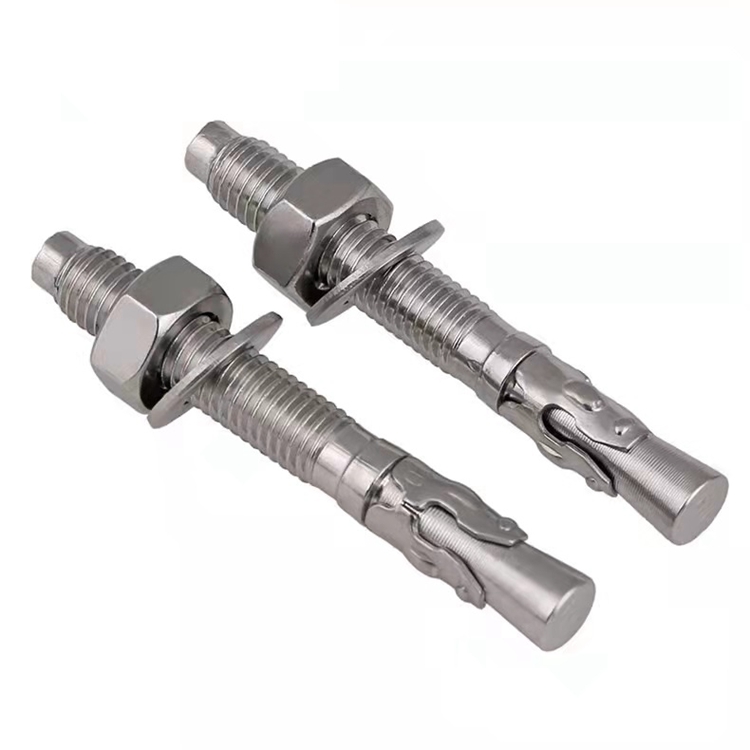Understanding Insulation Percentage for Stud Bolts in Various Applications
ታኅሣ . 03, 2024 22:50 Back to list
Understanding Insulation Percentage for Stud Bolts in Various Applications
Understanding Insulation Stud Bolts Applications, Benefits, and Best Practices
Insulation stud bolts are an essential component in various industrial applications, particularly in settings that require thermal insulation and support for piping systems. These specialized fasteners play a crucial role in maintaining the integrity of insulation materials, ensuring optimal energy efficiency, and preventing heat loss in systems where temperature regulation is vital.
What are Insulation Stud Bolts?
Insulation stud bolts are threaded fasteners specifically designed for insulation applications. They typically consist of a long rod or stud made from durable materials such as stainless steel, carbon steel, or even specialized alloys, depending on the environmental conditions they will face. These bolts have a specific design that allows them to bear the weight of insulation without compromising its effectiveness.
The main purpose of insulation stud bolts is to secure insulation materials around piping, valves, and other equipment that can be affected by temperature variations. They serve as anchors for insulation jackets, ensuring that these materials remain in place and function as intended.
Applications of Insulation Stud Bolts
The use of insulation stud bolts is found across a wide range of industries, including
1. Oil and Gas In the oil and gas sector, insulation is critical for maintaining temperature in pipelines transporting crude oil, natural gas, and other volatile substances. Insulation stud bolts help ensure that insulation remains secure in extreme environmental conditions.
2. Chemical Processing Process industries often require insulated pipes to maintain the appropriate temperature for chemical reactions. Stud bolts are essential in providing stability and structural support to the insulation systems used on these pipes.
3. Power Generation Insulation is vital in power plants to prevent heat loss in boilers, turbines, and piping systems. Insulation stud bolts facilitate the appropriate installation of insulation materials, which in turn improves energy efficiency and performance.
4. HVAC Systems In heating, ventilation, and air conditioning (HVAC) systems, proper insulation helps stabilize temperatures and reduce energy costs. Insulation stud bolts support the insulation on ducts and pipes, optimizing the system's efficiency.
Benefits of Using Insulation Stud Bolts
insulation stud bolt

1. Energy Efficiency By securing insulation materials in place, insulation stud bolts play a pivotal role in preventing heat loss. This can lead to significant energy savings, particularly in large industrial settings where temperature control is paramount.
2. Longevity and Durability Made from high-quality materials, insulation stud bolts resist corrosion and wear, ensuring a long service life. This durability reduces the need for frequent maintenance and replacement, saving costs in the long run.
3. Enhanced Safety Proper insulation helps prevent temperature-related hazards, such as condensation that can lead to rust or corrosion. By ensuring that insulation remains intact, insulation stud bolts contribute to a safer operational environment.
4. Versatility Insulation stud bolts are available in various sizes and materials, making them suitable for a wide range of applications and environmental conditions.
Best Practices for Installation
To maximize the benefits of insulation stud bolts, it is essential to follow best practices during installation
1. Proper Sizing Ensure that the studs selected are appropriately sized for the insulation material and the specific application. Undersized bolts may not provide adequate support, while oversized bolts can create unnecessary strain.
2. Correct Torque Application Use the recommended torque values for fastening insulation stud bolts. Over-tightening can damage the insulation, while under-tightening may lead to slippage or displacement.
3. Regular Inspections Periodically inspect insulation stud bolts and the surrounding insulation for signs of wear, corrosion, or displacement. Early detection of issues can prevent more extensive system failures.
4. Environmental Considerations Choose the material of the studs based on the environmental factors they will face, such as exposure to moisture, chemicals, or extreme temperatures. This choice can significantly affect the performance and longevity of the insulation system.
Conclusion
Insulation stud bolts are a vital component in maintaining the effectiveness of insulation systems across various industries. Their ability to provide structural support, improve energy efficiency, and enhance safety makes them indispensable. By understanding their applications, benefits, and best practices for installation, organizations can optimize their thermal insulation systems and ensure sustainable operations.
Latest news
-
Durable Bolts for Lawn Mower Handle - Top Supplier & Manufacturer
NewsAug.22,2025
-
High-Quality Bolts for Lawn Mower Handle Supplier & Manufacturer
NewsAug.21,2025
-
Reliable Axle Nuts Supplier | High-Quality Automotive Parts
NewsAug.19,2025
-
Premium Wire Bolts Suppliers | Durable & Reliable Fasteners
NewsAug.18,2025
-
Leading Metric Wood Screw Companies & Manufacturers
NewsAug.17,2025
-
Top Wire Bolts Suppliers - Quality & Durable Fasteners
NewsAug.15,2025
